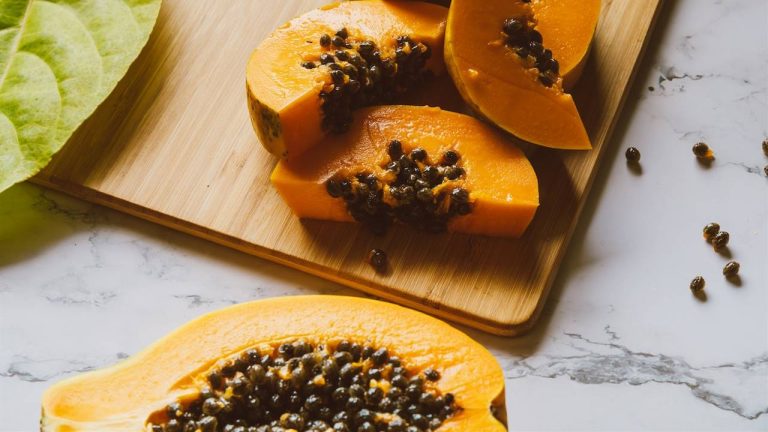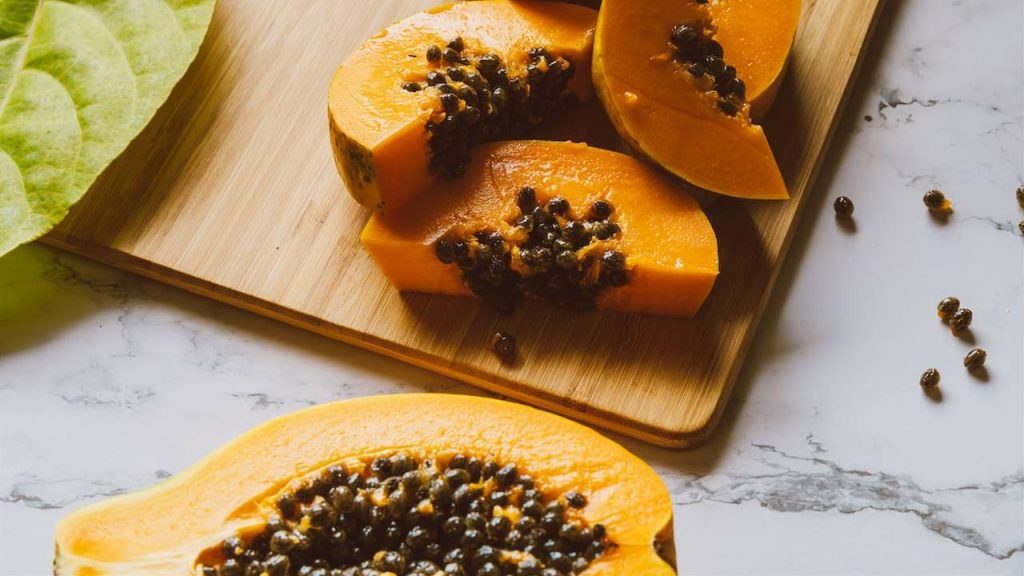
Papaya enzymes help digest large meals and protect against cancer.
Papaya is rich in an enzyme of digestive action, papain, very similar to pancreatic, secreted by the pancreas as a digestive enzyme.

From papaya both pulp (preferably green) and leaves are used. The leaf contains up to 2% papain and carbine.
These enzymes act as proteases, that is, they help the degradation of proteins, as well as the degradation of carbohydrates and fats.
Papaya’s complex protease blend is mainly noteworthy, although it also includes carbine, chymopapain A and B, and papaya peptidase A.
This type of proteases is also present in tropical pineapple, which contains bromelain, and therefore both papaya and pineapple are excellent desserts in foods where proteins have been abused.
These proteases may exert a remarkable antioxidant action and possibly reduce the risk of tumors.
PROPERTIES OF PAPAYA
In addition, papaya improves the digestibility of foods rich in fats, carbohydrates and especially proteins.
It is recommended for people who get easily soaked or suffer from gas or heavy digestion after eating a protein-rich meal.
Orally, papain and papaya extracts have been used to treat edema and inflammation following surgery, and also pharyngitis.
Carbine, of amoebicidal action, has been indicated against intestinal parasites.
Applied directly to the skin, papaya has proteolytic effects and is an excellent treatment for jellyfish stings, allergic dermatitis, shingles and psoriasis. Secondarily, it has been used in the treatment of. infected wounds, ulcers and sores.
Papain is also used for multiple purposes in the cosmetic and food industry. It is part of cosmetics, toothpastes and compounds of soft contact lenses, and is added to meat as a tenderizer and beer to control foam.
PRECAUTIONS WHEN TAKING PAPAIN
The abusive use of papain has sometimes produced perforations of the esophagus.
When it is green, its latex is irritating and noticeably vesicant (it can cause blisters on the skin).
In addition, papaya extracts can modify blood clotting, so they should be used with caution and warning the doctor when taking anticoagulants such as warfarin or Sintrom, as they increase the risk of bleeding.
Concomitant consumption of potatoes, figs or kiwis may also modify the proteolytic activity of papaya.
MAXIMUM RECOMMENDED PAPAIN DOSE
Papaya can be consumed in tablet form, which normally contain about 250 mg of powdered extract; They can be taken up to three or four a day.